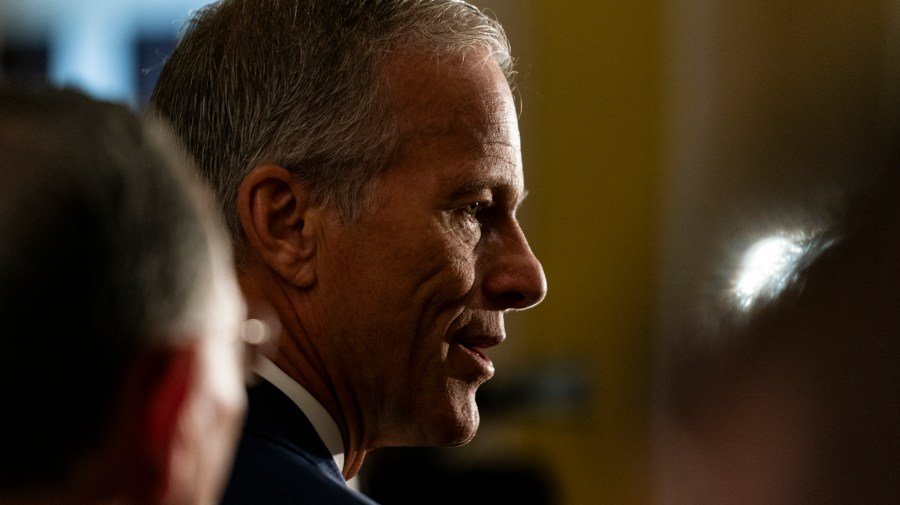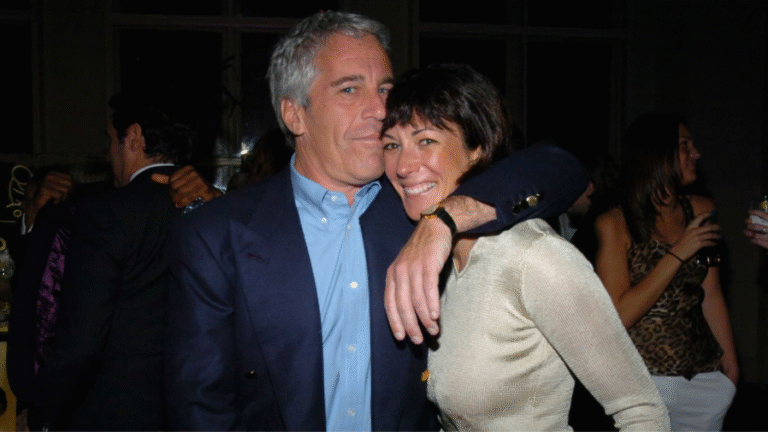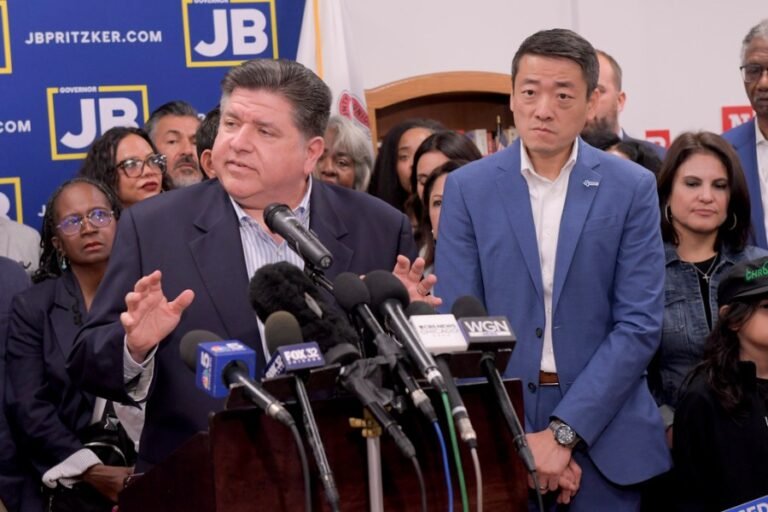
Senate Majority Leader John Thune (R-S.D.) faces a difficult test in rallying GOP colleagues to change the Senate’s rules to speed up the confirmation of approximately 140 Trump nominees.
Changing the Senate’s procedural rules with a simple-majority vote is sometimes called the “nuclear option” because it’s viewed as an extreme tactic.
In this case, many Republicans are ready to go “nuclear” because they think Democrats are unfairly holding up a number of lower-level, noncontroversial nominees.
Democrats have refused to confirm a single civilian Trump appointee by voice vote or unanimous consent during his first six-and-a-half months in office.
But Thune still needs to sell a handful of members on the change, including Sens. Thom Tillis (R-N.C.), Lisa Murkowski (R-Alaska) and Susan Collins (R-Maine), who aren’t yet on board with a proposal to weaken individual senators’ ability to hold up nominees.
A senior Senate Republican strategist said senators are going to be reluctant to give up their power to place holds on executive branch nominees, a power that GOP senators employed to gain leverage over the Biden administration.
“There’s a core group of people that are wary of setting new precedents or changing anything that’s going to affect them when the shoe’s on the other foot. I don’t think it’s a slam dunk,” the strategist said of Republican senators who are worried about diminishing their own authority if they return to minority-party status.
“Anytime you make these changes it can have lasting impact on how the Senate operates moving forward,” the source added.
Then-Sen. JD Vance (R-Ohio) placed a hold on all of former President Biden’s Justice Department nominees in 2023 to protest the Biden administration’s indictment of President Trump on criminal charges.
Alabama Sen. Tommy Tuberville (R) put a sweeping hold on all of Biden’s military promotions to protest the use of taxpayer dollars at the Defense Department to pay for service members’ travel across state lines to receive medical services, including abortion services.
Thune can only afford three defections from within his conference.
Tillis last week ruled out going “nuclear” over the stalled nominees.
“I just generally don’t go nuclear,” he said.
“We can do the work. We’ve come up with some bipartisan strategies for changing the rules,” he added, arguing that Republicans and Democrats could work together to make the Senate more efficient at confirming nominees without trampling on the rights of the minority party.
“If we do this, then that means the new bar for rules is a simple majority,” he said of the prospect of Senate Republicans changing the rules with 51 votes instead of the 67 votes required under regular order to change the chamber’s rules.
Tillis also poured cold water on the idea of allowing Trump to make recess appointments, something that Senate conservatives have floated as an option to clear the backlog of stalled nominees.
Tillis, who opposed Ed Martin, Trump’s initial nominee to serve as U.S. attorney for the District of Columbia, said he would want to put guardrails on recent appointments.
Asked whether he could support opening the door to recess appointments, Tillis replied: “Not if it lays the groundwork for an Ed Martin.”
Republican senators left town pledging to take up rules reform when they return to Washington after Labor Day.
“We’re trying to break the logjam,” Sen. Markwayne Mullin (R-Okla.) said on Fox News’s “Sunday Morning Futures” with Maria Bartiromo.
“We put them on notice and said, ‘We’re not going to play games with you anymore. Now you’re forcing us to change Senate rules,’” said Mullin, a deputy Senate GOP whip. “So soon as we get back from August we’re going to be working on rules change. When we get back, we’re going to have to implement that rules change.”
Thune and his leadership team will need to focus on Tillis, Collins and Murkowski, along with other potential wild cards such as former Senate Republican Leader Mitch McConnell (Ky.).
McConnell earlier this year voted against some of Trump’s controversial nominees, including Secretary of Defense Pete Hegseth, Secretary of Health and Human Services Robert F. Kennedy Jr. and Director of National Intelligence Tulsi Gabbard.
Collins told reporters that she wants to review precisely what rule changes the Senate GOP leadership team has in mind.
“We clearly have a huge problem with bipartisan nominees requiring roll call votes, but I want to see what the exact proposals are,” she said.
Murkowski has favored preserving senators’ rights and prerogatives from the ever-expanding powers of the White House and executive branch.
The Alaska senator has voiced her frustration about spending hours of Senate floor time churning through lower-level nominees.
But she’s drawn a line at allowing Trump to make recess appointments.
“No, we do our job here. We’ve got plenty of time to address it, we’re working through it,” she said of the backlog of Trump nominees.
Asked about changing the Senate rules with a simple-majority vote, Murkowski expressed her desire to instead find a bipartisan solution that would not blow up relations with Democrats.
“There’s a good conversation that’s going on, it’s actually a bipartisan conversation, about how we can be more efficient,” she said. “We just voted on the general counsel … of the Department of [Agriculture]. There’s a better way to do this.”
Murkowski, senior appropriator, wants to work with Democrats to pass the regular spending bills for fiscal 2026, bills that need 60 votes to pass on the Senate floor.
Triggering the nuclear option to fast-track lower-level, noncontroversial nominees would likely scuttle the chances of reaching a bipartisan spending deal before the Sept. 30 deadline.
A Senate Republican aide said GOP senators are still in the discussion phase of a potential rules change.
“No one’s presented a clear option. Right now they’re still discussing a suite of options,” the source said.
GOP senators have discussed a rules change that would allow Thune to advance lower-level nominees in groups, perhaps in blocs of three or five or more.
Another option would be to eliminate the time-consuming cloture vote, which takes place to limit debate before proceeding to a final confirmation vote.
A third option would be to collapse the mandatory two hours of debate time that must take place between the procedural vote to invoke cloture and the final confirmation vote. That could save two hours of floor time per district court-level and sub-Cabinet-level nominees.


